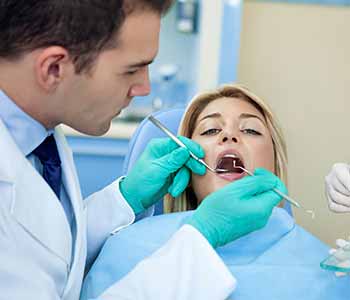
1. Persistent Tooth Pain
If you experience ongoing or sharp tooth pain, it may indicate:
Tooth decay
Infection
Gum disease
Abscessed tooth
Newnan dentistry professionals can diagnose the cause and provide relief through appropriate treatments.
2. Bleeding or Swollen Gums
Bleeding while brushing or flossing is not normal. It could be a symptom of:
Gingivitis
Periodontitis
Improper oral hygiene
Swollen gums can also indicate inflammation that needs immediate attention.
3. Loose or Shifting Teeth
Adult teeth should never feel loose. Movement could mean:
Bone loss
Advanced gum disease
Bite misalignment
Early intervention by newnan dentistry can help stabilize your teeth and prevent tooth loss.
4. Persistent Bad Breath
Chronic halitosis is more than a social concern. It might be linked to:
Gum infection
Food particles trapped in decayed teeth
Dry mouth or oral bacteria
Dentists can identify the root cause and recommend long-term solutions.
5. Tooth Sensitivity to Hot or Cold
Sensitive teeth may be caused by:
Enamel erosion
Gum recession
Cracks or fractures
Cavities
If your discomfort is frequent, consult a newnan dentistry provider for evaluation and care.
6. Jaw Pain or Clicking
Pain, stiffness, or clicking in the jaw may signal:
Temporomandibular joint disorder (TMJ)
Teeth grinding (bruxism)
Jaw misalignment
Prompt treatment can prevent chronic issues and improve your comfort.
7. Sores or Lumps in the Mouth
Mouth sores, ulcers, or lumps should not be ignored. While they may be minor, persistent growths can signal more serious issues like:
Oral infections
Autoimmune disorders
Oral cancer
Newnan dentistry clinics often conduct thorough screenings to detect such conditions early.
Importance of Early Diagnosis
Delaying dental visits only worsens the condition. Many oral health issues progress silently, making early diagnosis critical. Early treatment is often less invasive, more affordable, and more effective.
The Role of Routine Checkups
Even if you're not experiencing symptoms, regular dental checkups help:
Monitor your oral health
Identify issues before they worsen
Clean areas your toothbrush misses
Routine visits typically include:
Dental cleaning
X-rays
Oral cancer screening
Consultation and education
Personalized Treatment Plans
Dentists in newnan dentistry work with you to create tailored treatment plans. These may involve:
Immediate intervention (e.g., fillings, root canal)
Preventive strategies (e.g., fluoride treatments, sealants)
Lifestyle advice (e.g., quitting smoking, better brushing)
When to Seek Emergency Dental Care
You should seek emergency care if you experience:
Uncontrollable bleeding
Knocked-out or broken teeth
Facial swelling
Severe infection or abscess
Immediate treatment can save teeth and reduce complications.
What to Expect During Your Visit
Most first visits include:
Medical and dental history review
Thorough examination
X-rays or imaging
Treatment discussion
Newnan dentistry offices are known for their friendly, patient-focused environments that aim to ease any anxiety.
Affordable Care and Payment Options
Affordability should not be a barrier. Many clinics provide:
Flexible payment plans
Discount programs for uninsured patients
Insurance billing support
Conclusion
Oral symptoms should never be ignored. Prompt care from a newnan dentistry professional not only protects your teeth and gums but also supports your overall health. If you notice any of the signs mentioned above, don't wait—schedule a visit today.
FAQs about Newnan Dentistry and Dental Warning Signs
Q1: What happens if I ignore tooth pain?
A: Ignoring tooth pain can lead to infection, tooth loss, or more complex procedures like root canals.
Q2: How can I tell if bleeding gums are serious?
A: Occasional bleeding can occur, but if it's frequent or severe, it may indicate gum disease.
Q3: Are all mouth sores dangerous?
A: Most are harmless and resolve on their own. However, persistent or unusual sores should be examined.
Q4: Can jaw clicking go away on its own?
A: Mild clicking may resolve, but if it's accompanied by pain or difficulty chewing, professional evaluation is needed.
Q5: Should I visit a dentist even if I don’t have pain?
A: Yes. Regular dental checkups help detect hidden issues before they become painful or costly.